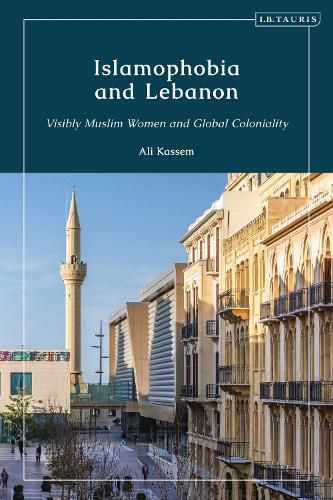Readings Newsletter
Become a Readings Member to make your shopping experience even easier.
Sign in or sign up for free!
You’re not far away from qualifying for FREE standard shipping within Australia
You’ve qualified for FREE standard shipping within Australia
The cart is loading…






Thinking through anti, post, and decolonial theories, this book examines, analyses, and conceptualises 'visibly Muslim' Lebanese women's lived experiences of discrimination, assault, wounding, and erasure. Based on in-depth research alongside over 100 Sunni and Shia participant between 2017 and 2019 it situates these experiences at the intersection of the local and the global and argues for their conceptualisation as a form of structural and lived anti-Muslim racism. In doing this, it discusses the convergences and divergences of anti-Muslim racism in Lebanon with anti-Muslim racism in other parts of both the global north and the global south. It examines the production of this racialisation as well as its workings across spheres of public, private, work, and state - including an analysis of internalised self-hate. It further explores various forms of resistance and negotiation and the contemporary possibilities and impossibilities of working beyond the epistemic framework of Eurocentric modernity. As the first in-depth and extensive study of anti-Muslim racism within Muslim-majority and Arab-majority spaces, it offers an urgent and timely redress to multiple gaps and biases in the study of the Muslim-majority and Arab-majority worlds as well as racialisation broadly and Islamophobia specifically.
$9.00 standard shipping within Australia
FREE standard shipping within Australia for orders over $100.00
Express & International shipping calculated at checkout
Thinking through anti, post, and decolonial theories, this book examines, analyses, and conceptualises 'visibly Muslim' Lebanese women's lived experiences of discrimination, assault, wounding, and erasure. Based on in-depth research alongside over 100 Sunni and Shia participant between 2017 and 2019 it situates these experiences at the intersection of the local and the global and argues for their conceptualisation as a form of structural and lived anti-Muslim racism. In doing this, it discusses the convergences and divergences of anti-Muslim racism in Lebanon with anti-Muslim racism in other parts of both the global north and the global south. It examines the production of this racialisation as well as its workings across spheres of public, private, work, and state - including an analysis of internalised self-hate. It further explores various forms of resistance and negotiation and the contemporary possibilities and impossibilities of working beyond the epistemic framework of Eurocentric modernity. As the first in-depth and extensive study of anti-Muslim racism within Muslim-majority and Arab-majority spaces, it offers an urgent and timely redress to multiple gaps and biases in the study of the Muslim-majority and Arab-majority worlds as well as racialisation broadly and Islamophobia specifically.